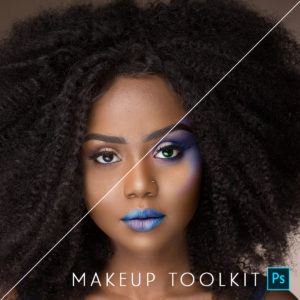Featured Products

Working as an Assistant or a “Third” or “Second” can be a fantastic way to get started in photography. It’s a tremendous opportunity to learn from established professionals and to help you begin earning money for your work as quickly as possible!
Some Definitions
Lighting Assistant – someone who moves, sets up or holds lights
Studio Assistant – someone who helps a photographer and clients in a studio rocks babies, manages children etc
Admin Assistant -someone who helps with the administrative side of running a business, possibly fulfilling orders, doing paperwork or answering phones
Wedding Assistant – someone who hauls (or guards) equipment, helps organize the photographer’s shot lists (or large extended families) and possibly other helpful duties (like keeping the Primary Photographer hydrated!)
Third – (meaning, third camera person) someone who is dedicated to small, generally less essential photography during a session or wedding. Often assigned to shadow a Second, or to capture a non-essential different point of view of a scene covered by another photographer on the team
Second – (meaning second camera person) someone responsible for specific portions of the wedding day. Usually someone who is equally as skilled as the Primary photographer, and sometimes even has a special skill that the Primary has hired them for specifically.
Primary – sometimes also called a “Lead” photographer. The person who is ultimately responsible for the session/shoot/wedding. Often (but not always) the most extensively experienced photographer.
When teaching business classes for photographers I’m often asked about the practicalities and mechanics of how to not only find work, but how to create invoices, work with other small businesses and get paid. When we’re first beginning in the industry it’s easy to feel like a minnow in a great big ocean. Being assertive and proactive about your business policies and practices can be difficult because, well, you may not have any yet!
Knowing when to be insistent and when to be flexible is impossible without experience, and knowing how to work with other small businesses can be challenge without some inside information. When working as a Third, Second, or Assistant it can be especially confusing because each Primary and each business has different standards and policies. There’s a delicate balance between requesting to be paid what you are due and not being clear and assertive enough.
Tips for Getting Paid
1) Make it easy to pay you. Get a Paypal account, online banking, and credit card reader. There are plenty of options out there, it doesn’t have to be those specific systems, just get more than one method. If you can make it easy for your Primary, or other small business vendor to pay you on the spot or within days of your work, it keeps everything simple.
2) Keep a copy of your receipts and provide them to the business (if applicable). The Primary, or small business will likely need a copy for their records, as you will too!
3) Have a written contract or agreement. Even if it’s something as simple as an email from your Primary that says “I will reimburse you the costs of your camera rental and gas”. Having it in writing helps for reference purposes later.
4) Send an invoice. If your Primary or other small business hasn’t automatically or immediately paid you with one of those handy tech based methods listed in #1, then go ahead and invoice the business with a professional invoice within 30 days of the date of service. Even if they have paid you on the spot, you may want to follow up and formalize the arrangement with a invoice that reflects the payment received.
5) Keep track of facts. Use your calendar, day planner or accounting system to track the details of what happens with the vendor, Primary or small business. Make a note of the date of the invoice, the date of correspondence and the details of the job. Consider making notes for things like “the $5 parking lot was full, so we had to park in the $15 lot for this job” or “I bought two bottles of water for the Primary because the venue didn’t have any”. Notes like this can help you remember the details later on.
6) Think of the big picture. We’re all eager to get paid and it’s easy to start to panic if we don’t have an expected payment in our hands when we want. Keep in mind that most small businesses operate with a net 30 or 60 days accounting procedure. If it hasn’t been 30 days since you submitted your invoice, don’t panic.
7) Consider providing a prepaid, addressed courier envelope if the only way you can accept payment is by check. Making it easy to pay you makes it particularly pleasant to work with you!
8) Be proactive, but not bothersome. If you were not paid on the spot, send an invoice early, as soon as the job is completed or as soon as appropriate. If you don’t receive payment or confirmation, follow up in a few days to a few weeks with a polite email confirming that the invoice was received and asking if they have any questions.
9) Ask before demanding. Follow up, by all means! If you haven’t heard back from the business within 30 days of sending your invoice, send a reminder. Small business owners are swamped and a friendly, polite reminder of your invoice can help you! Stay focused on your goal of getting repeat work.
10) Be clear about your policies and expectations. If you expect to be paid within 48 hours of working as a Second or vendor to a small business, state that clearly, up front.
11) Engage a small business attorney. It’s always great to have experts to be able to call upon when needed. If an invoice hasn’t been paid for several months, it’s worth following up with your attorney. I don’t recommend threatening use of your attorney after just a couple weeks have passed after your invoice date however.
Some things to avoid doing:
1) Don’t chase the Primary with repeated texts, emails, social media messages, group emails, posts to group forums or phone calls to the business. Tactics like that are reserved for accounts that are grievously overdue (ie, 6months +). Turn up the heat when you have done everything right AND your invoice is past due.
2) Don’t work on a handshake agreement unless you are completely comfortable with the possibility that you may not get paid.
3) Don’t expect a response in 24 hours, or even 48 hours. Small businesses are usually buried under huge to-do lists. You can expect wedding photographers especially to be completely inaccessible from Friday to Monday.
4) Don’t burn bridges with unprofessional behavior, character attacks, cursing, defamation etc.
5) Don’t pad your expenses
Kat Forder creates stories of life, love and make-believe from her studio in Maryland and around the world. On her days off you can catch her curled up with a cup of tea and a good book, or roaming with her two Shetland Sheepdogs.






































